(July 4, 2022) About 10 minutes into the interview, I asked Dr. Balasubramanian Ramani what drew him to pursue a degree in zoology. “It was actually cricket,” he said. When I asked him if he was talking about cricket ‘the game’, the scholar laughed and added, “Yes. Not unlike other kids in India, I grew up playing cricket. No matter how busy I was with my studies, I would always find time to play the game. I was a part of my school team, and eventually, I played for the district. After I finished my XII standard, I wasn’t so sure about what next, but I knew that I had to join a University that had a good cricket team, so that I can continue playing.”
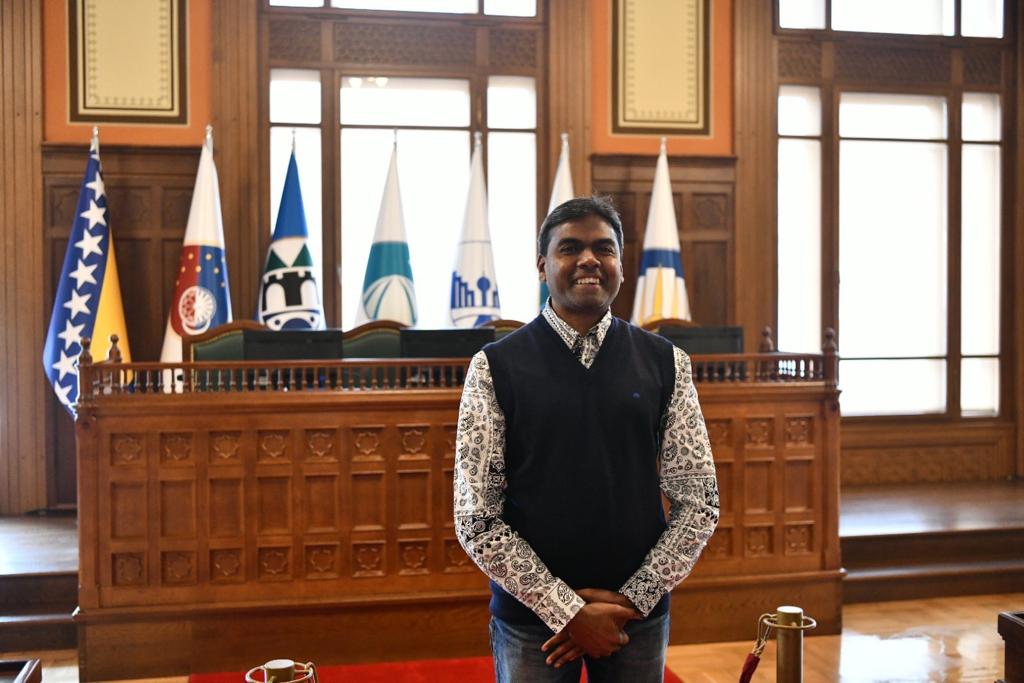
His start might have been unusual, but it was cricket that set this scholar on a path to glory. Today, a member of staff of Leibniz University of Hannover (LUH), Germany, Dr. Balasubramanian Ramani is the founder of Indian Association Hannover, an initiative that has attracted numerous members of all ages, organises many events and provides support with administrative aspects, doctor’s appointments or childcare issues. The Global Indian, who is also a member of the Hannover Mitte district council of the Social Democratic Party and acts as an advisory member in the international committee of the city of Hannover, was awarded the coveted Pravasi Bharatiya Samman Award for his work in the field of collaboration between India and Germany. “I am glad that I could extend my stay at the Institute of Botany in Hannover, which allowed me to expand my exciting field of work at the International Office of LUH” the scholar said.
An academic marvel
Born and brought up in a small village in Tamil Nadu, Dr. Ramani’s life was surrounded by lush green forest. “I was born in a small village called Kalancheri, in the Thanjavur district. I still vividly remember my time there, and whenever I go to India even now, I try to be involved in the various activities – be it agriculture, land, or anything else,” said the scholar, adding, “My family also runs a school, which celebrated its 100 years in 2019; I am taking care of the school now.”
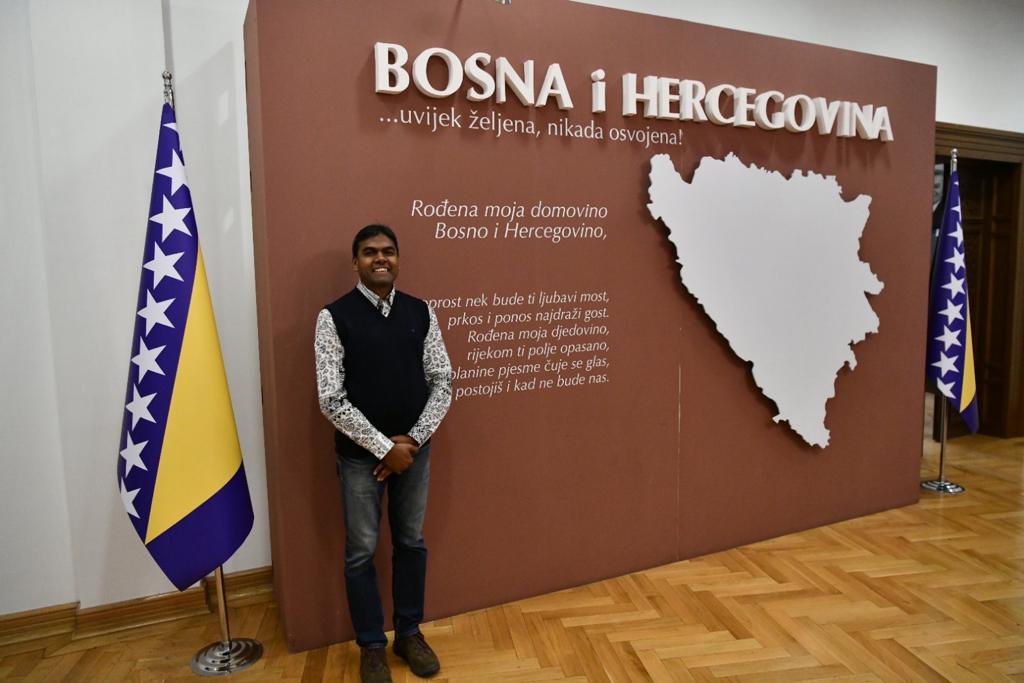
“Not the brightest child in the classroom,” in his word, it was his father who inspired Dr. Balasubramanian Ramani to study biology, which later helped him carve his career path. “My father is a veterinary doctor. We owned about 10 cows and I grew up around various animals. I would join my father during his visits to the sick animal and observe how gently he took care of them. So I was drawn to biology,” shared the scholar, who earned a Gold medal during his undergraduate course in zoology at Bharathidasan University in 1997.
With a plan to continue to be with his friends, Dr. Ramani joined Annamalai University, the same year to pursue a post-graduate course in marine biology and oceanography. And this proved to be a turning point for him. “It was after joining the course that I realised how interesting life beneath oceans is. We would often visit the ocean and also go for scuba diving to collect samples – and it was quite a breathtaking view. My teachers motivated me a lot and that was when I started working on my thesis – Desalinization of seawater using cyanobacterium – which won the Best Student Project that year,” the scholar said.
After finishing his master’s in 1999, Dr. Ramani – a little unsure about what next – took the advice of one of his professors about his future. “About two or three months after I finished my master’s, I received a call from a professor of mine saying that he had received an invitation letter from a German University, for a student who would be interested to do a Ph.D. training. He informed me that he thought that I was the best candidate and he had already given his acceptance on my behalf for the project,” he shared, adding, “When your guru says something, you have to do it. And so I started packing up and a few weeks later I arrived in Germany.”
The Deutschland
It was the first time that this village lad had taken a flight, but a greater challenge awaited him when descended in Germany. Shared the scholar, “I didn’t know that language – and that is a huge barrier for anyone. I knew English, but not a single word in German. The other thing that I had to deal with was the harsh German winter. I had landed there in January and while I knew about the weather, nothing prepares you for the winter here.”
Braving the odds, Dr. Balasubramanian Ramani joined the Leibniz University of Hannover to pursue his Ph.D. in marine botany with a scholarship from the state of Lower Saxony. “My initial plan was that I would take the one-year training in Germany and then fly back to India to pursue my Ph.D. However, the professors here requested me to continue my work there, and so I stayed back. I worked on marine cyanobacterium, also called blue-green algae, which are an ancient group of photosynthetic microbes that occur in most inland waters and that can have major effects on the water quality and functioning of aquatic ecosystems,” he said.
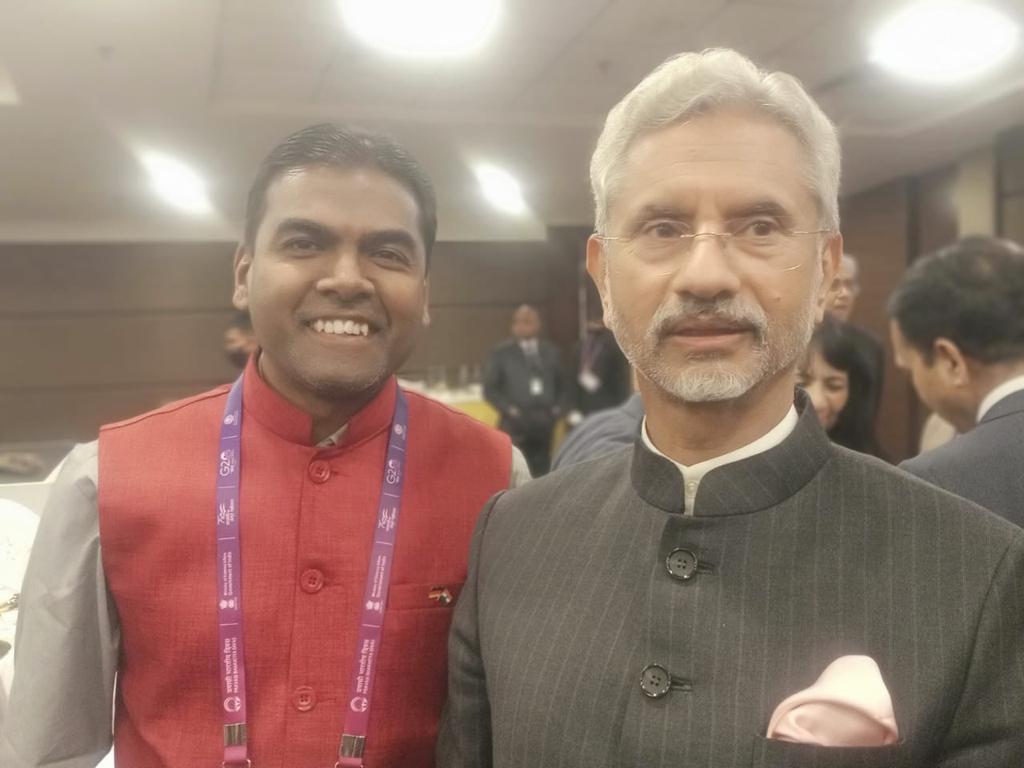
Dr. Ramani with S. Jaishankar, Minister of External Affairs of India
While he stayed back for his Ph.D., Dr. Ramani had planned that he would return to his homeland after earning his doctorate. A plan that failed due to a natural calamity. “I planned that I would return soon after I receive my degree – which was in 2004. However, during the same time that I was to return the tsunami in the Indian Ocean destroyed large parts of my institute where I was to continue my work,” said the scholar, who joined the Leibniz University’s Office for International Affairs. He assumed a permanent role in the University in 2011 and has been the regional coordinator for Indian/South Asian as well as African students. In the last few years, the scholar has been able to significantly expand the cooperation between the LUH and universities and research institutions in India.
Community before self
Dr. Ramani initiated a program in 2010 at LUH in collaboration with the Indian Council for Cultural Relations (ICCR), facilitating a rotational exchange of chairs between Indian and German professors. During the same year, he played a pivotal role in establishing the Centre for Modern Indian Studies (CMIS) at the University of Cologne. This center was dedicated to fostering Indo-German research on Vocational Education and Training, and it received funding from the German Ministry of Education and Research.
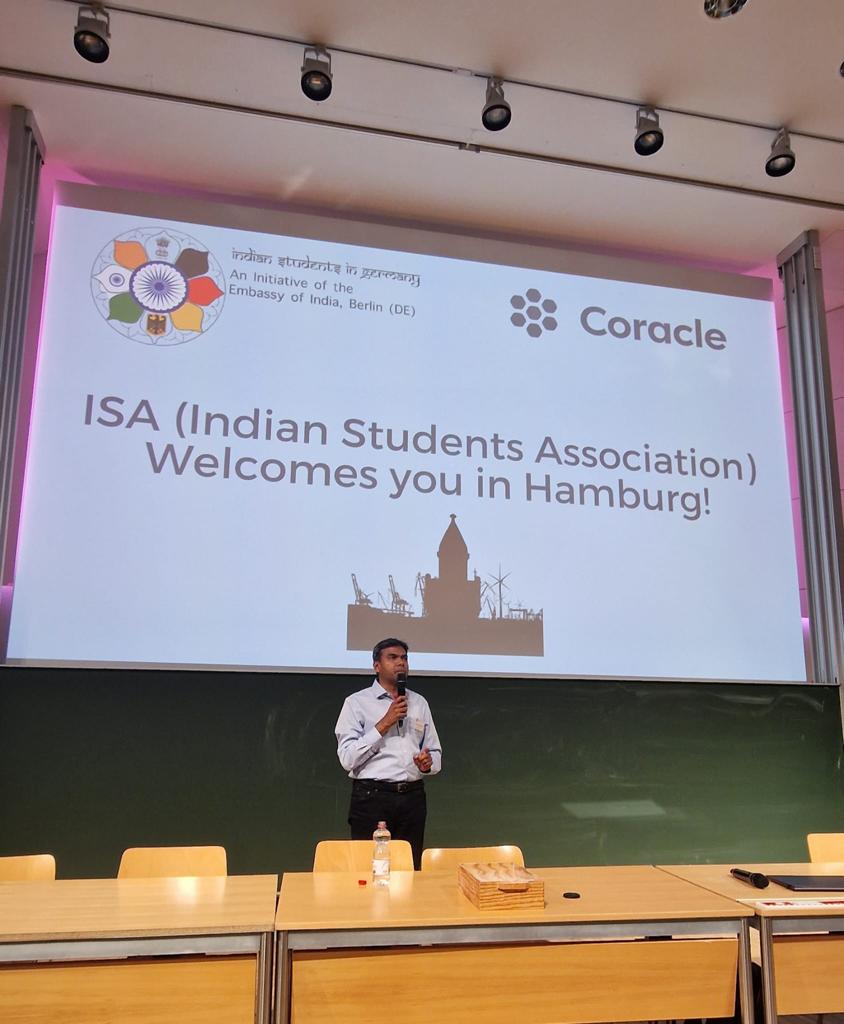
“We focussed on the apprenticeship education or vocational training in Germany for these young foreign students. Germany had its own successful model, called the dual system through which students spend three days in class and two days on the field every week. I wanted the same exposure for the kids who were coming from India to have similar experiences and learn better,” shared the scholar.
Dr. Ramani established the Indian Student Association in Germany in 2015, receiving a recommendation from the Indian Embassy in Berlin. He is also the founder of the Young Professionals Platform for Agricultural Research for Development (YPARD), which is funded by the Swiss Agency for Development and Cooperation (SDC), the Government of Switzerland. “As the Global Coordinator of YPARD, I had the opportunity to travel to over 33 countries, where I personally established a platform aimed at inspiring young professionals to address global agricultural challenges. Additionally, I successfully negotiated for YPARD’s inclusion as a part of the United Nations Food and Agriculture Organisation.”
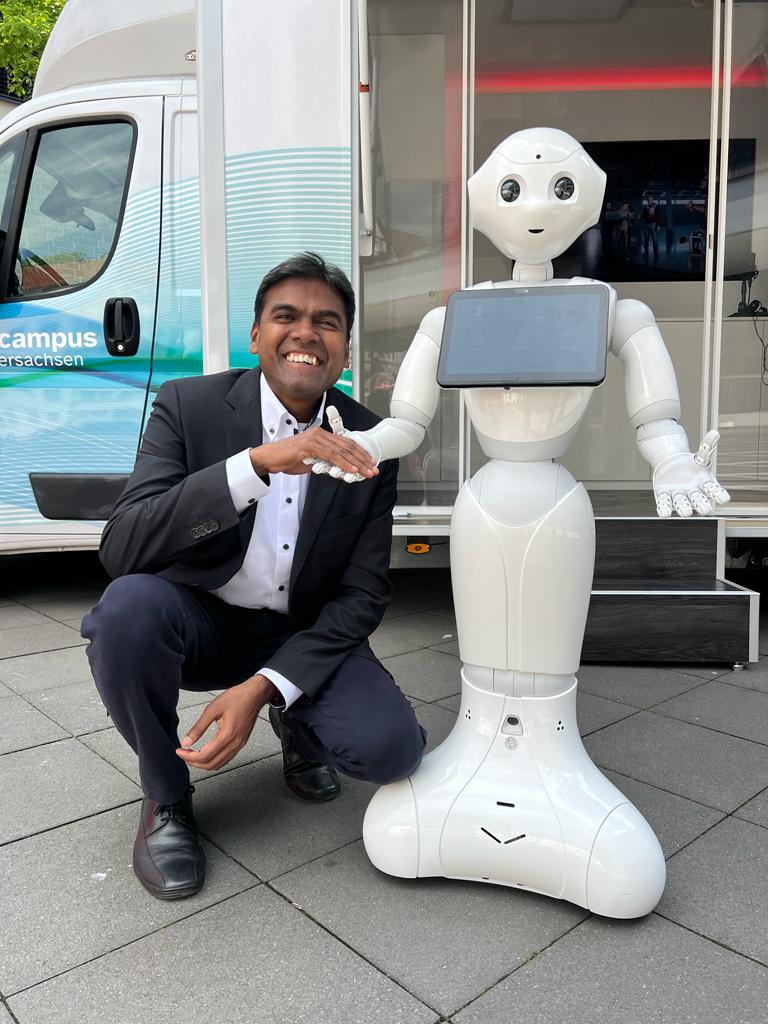
Devoted to helping students, Dr. Balasubramanian Ramani has been supporting African higher education institutions through capacity-building activities for students in writing research projects, arranging contacts with prospective professors for research projects, and also providing small financial support for projects. “The best way the world can develop today is by sharing the knowledge base. We need to create an environment where all the students, across the globe, can access the information and knowledge that will help them grow,” said the scholar as he signed off.


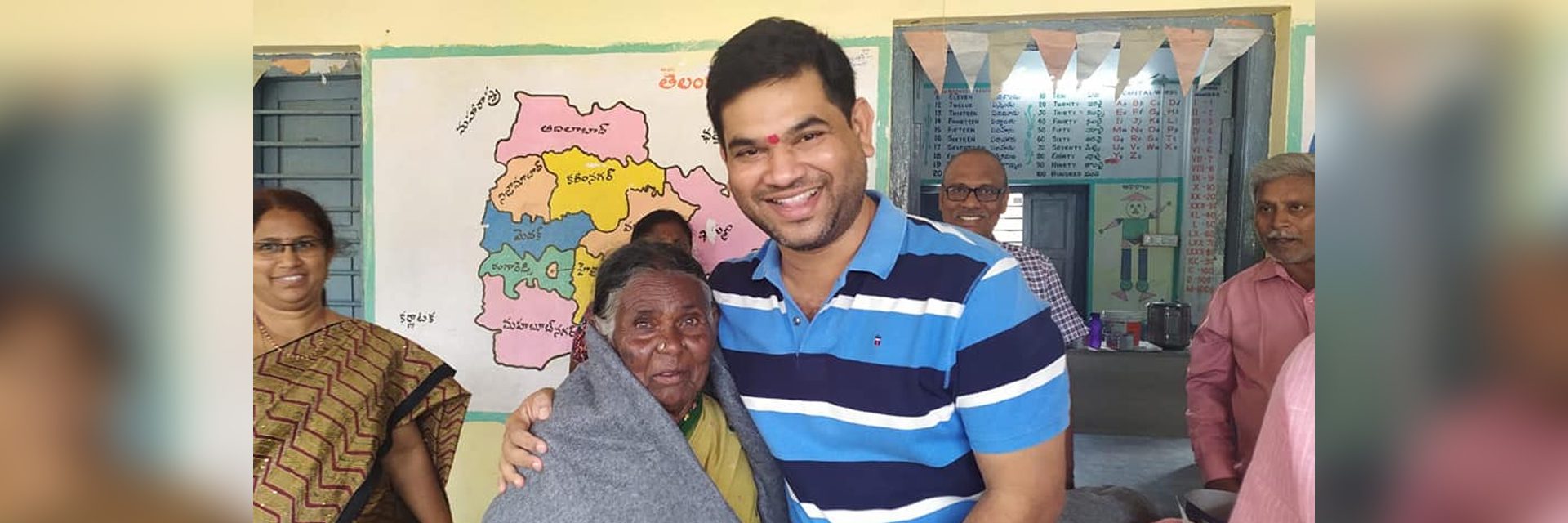
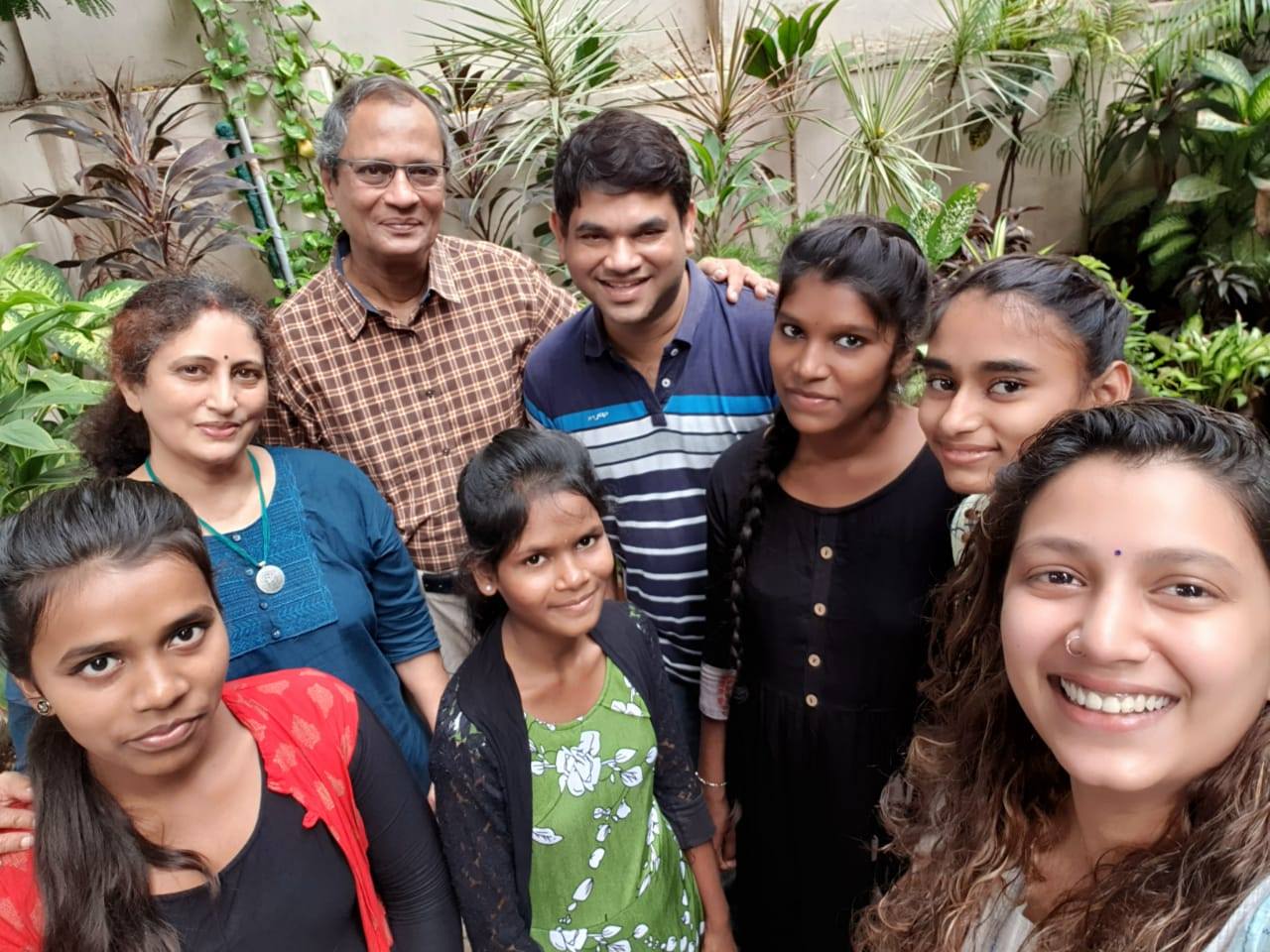
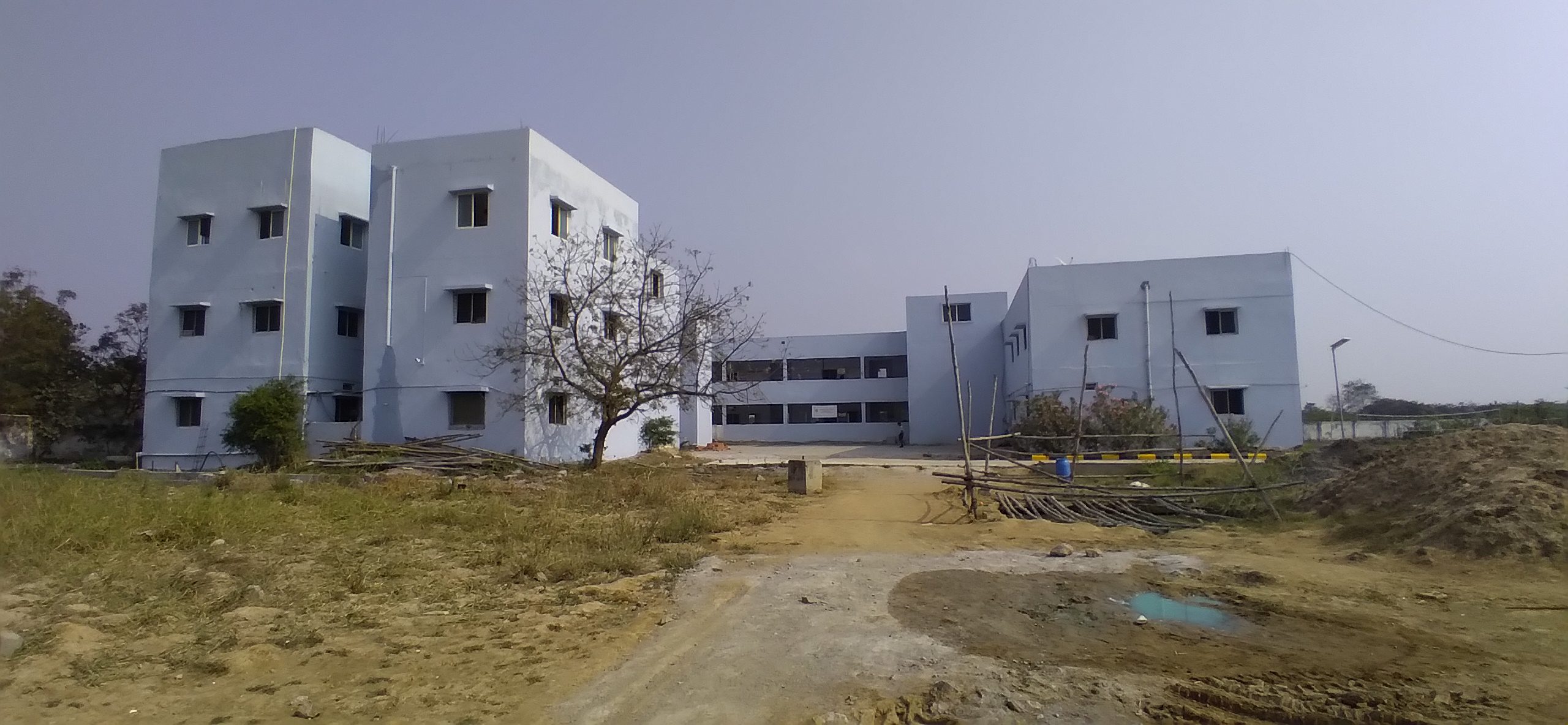 The new school site[/caption]
The new school site[/caption]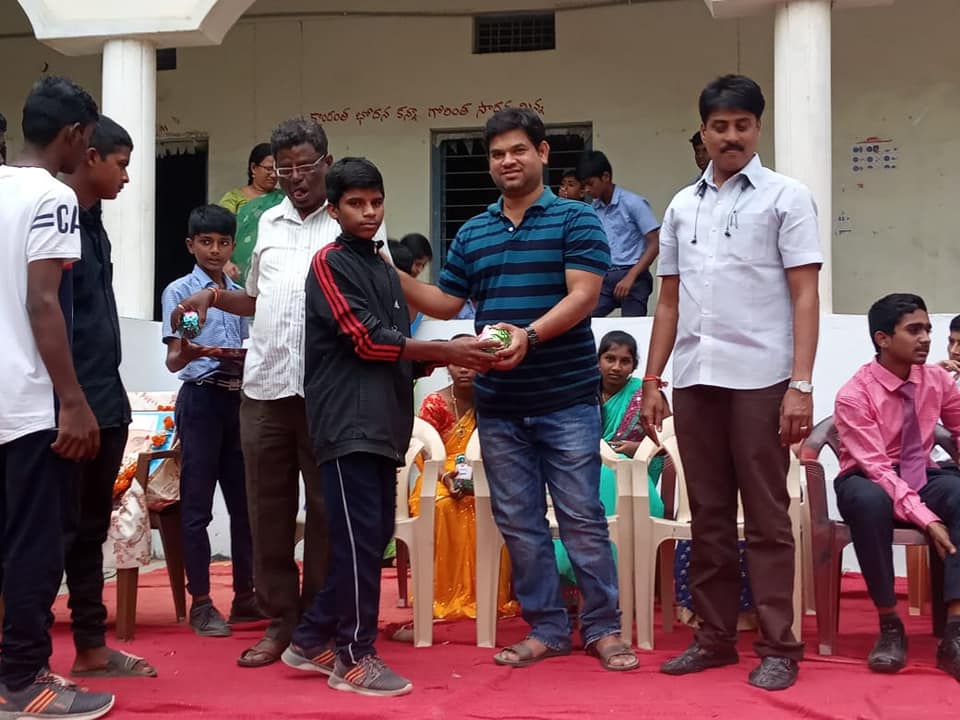

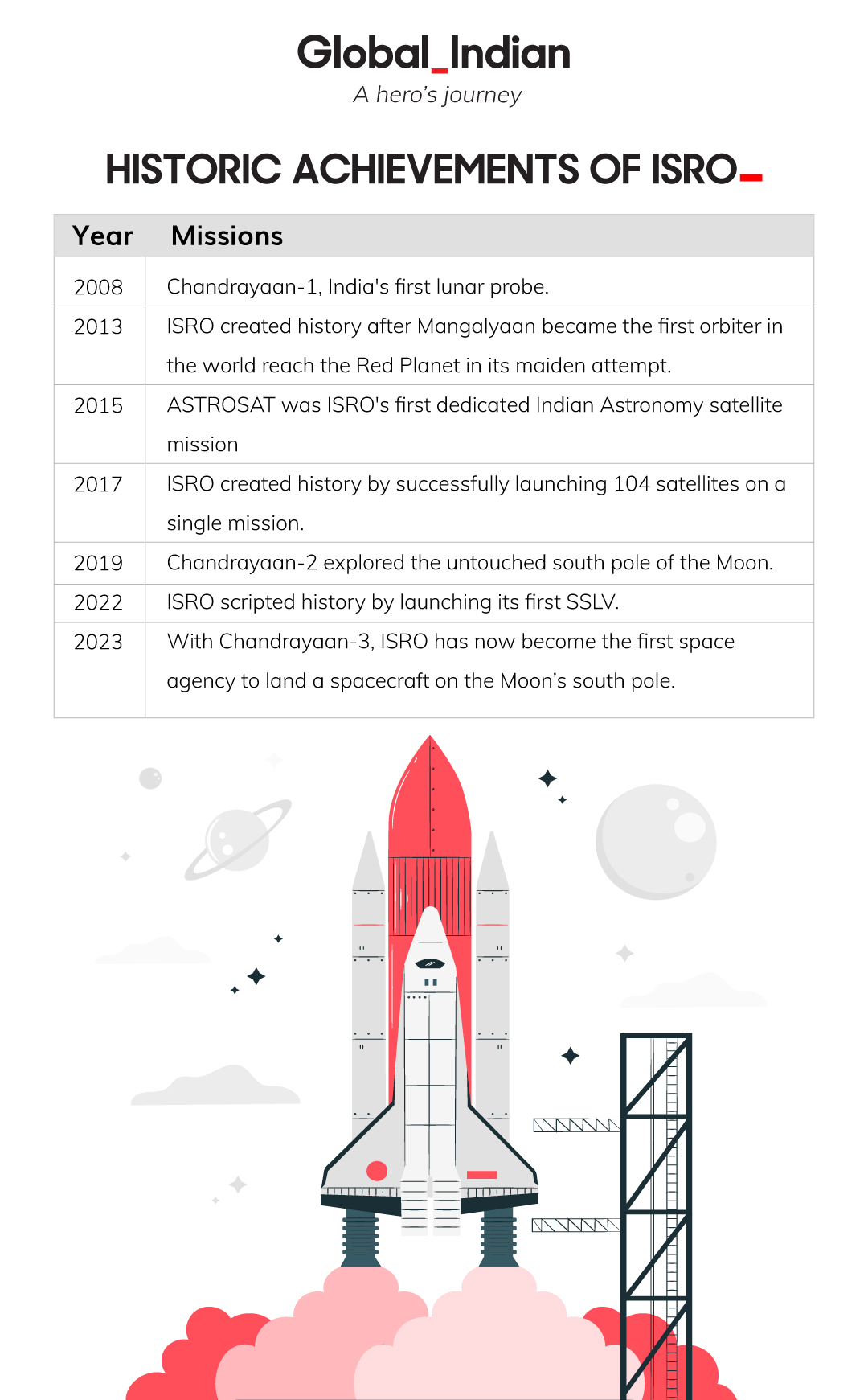
 ISRO's Chandrayaan-2 explored the south pole of the Moon[/caption]
ISRO's Chandrayaan-2 explored the south pole of the Moon[/caption]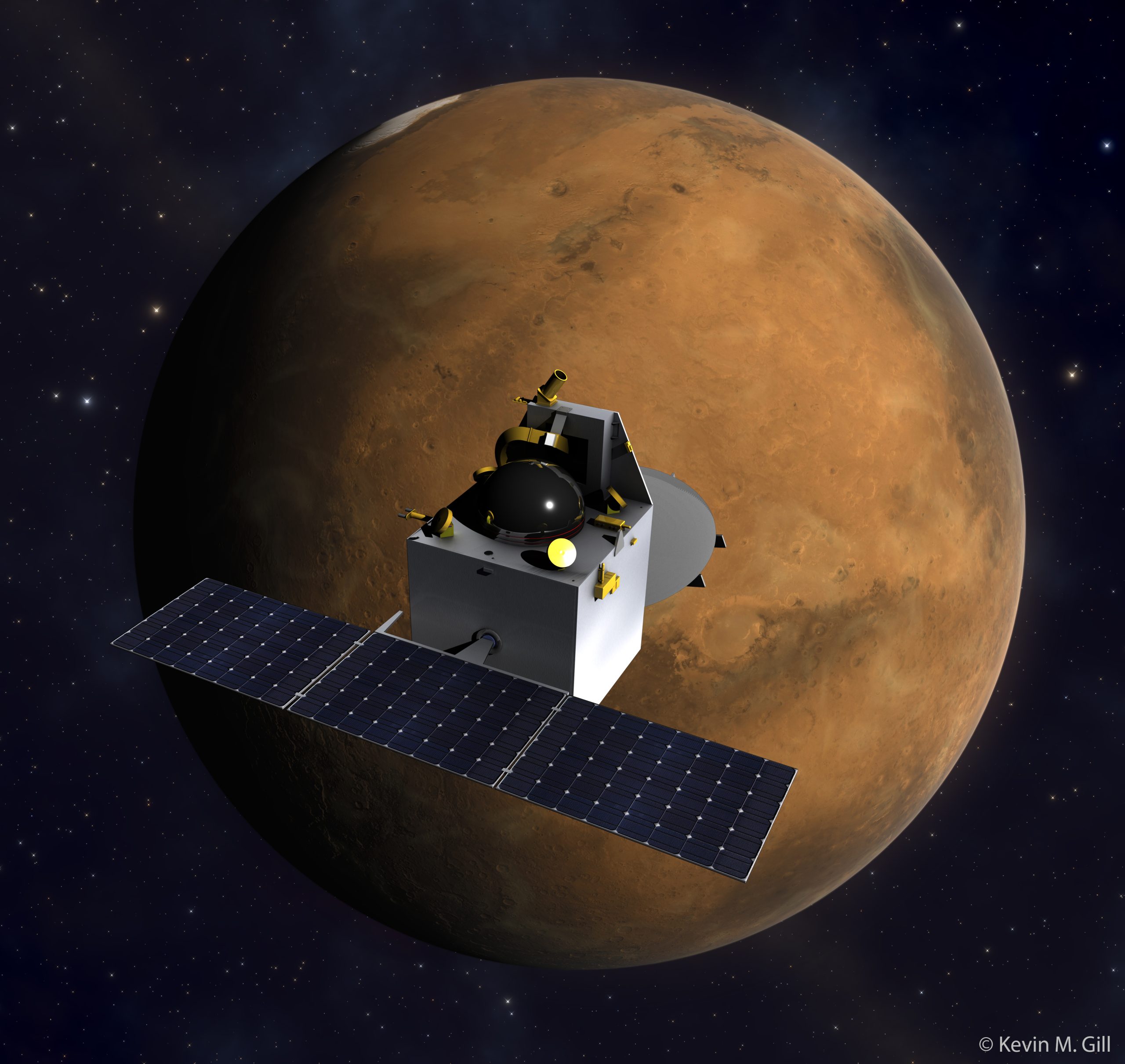 ISRO's Mangalyaan[/caption]
ISRO's Mangalyaan[/caption]

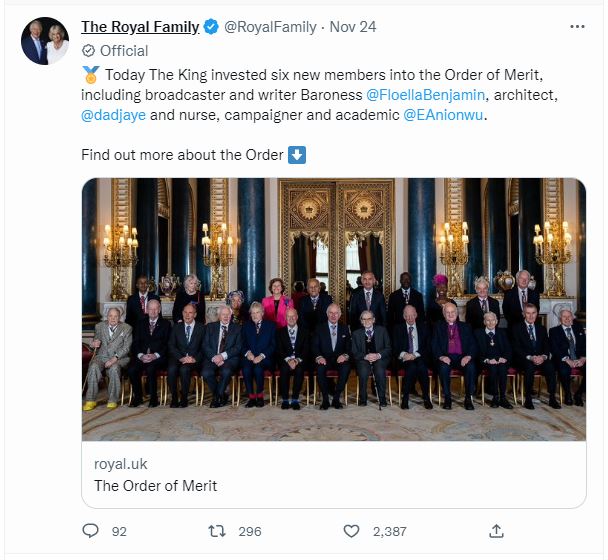
 Dr Ramakrishnan receiving Nobel Prize in Chemistry from King Carl XVI Gustaf of Sweden in 2009[/caption]
Dr Ramakrishnan receiving Nobel Prize in Chemistry from King Carl XVI Gustaf of Sweden in 2009[/caption]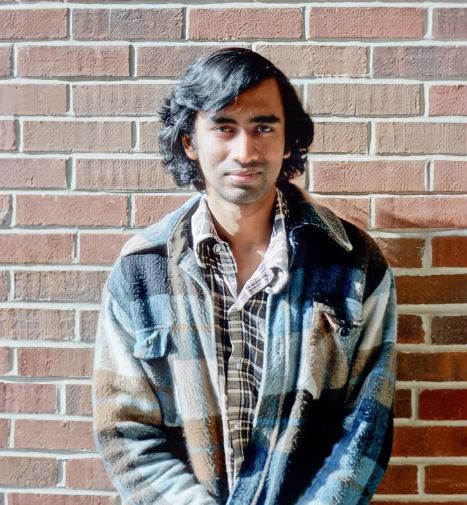 Dr Ramakrishnan in early days of his life[/caption]
Dr Ramakrishnan in early days of his life[/caption]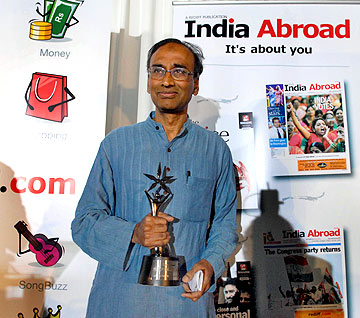
 Cover of Dr Ramakrishnan's book on ribosome[/caption]
Cover of Dr Ramakrishnan's book on ribosome[/caption]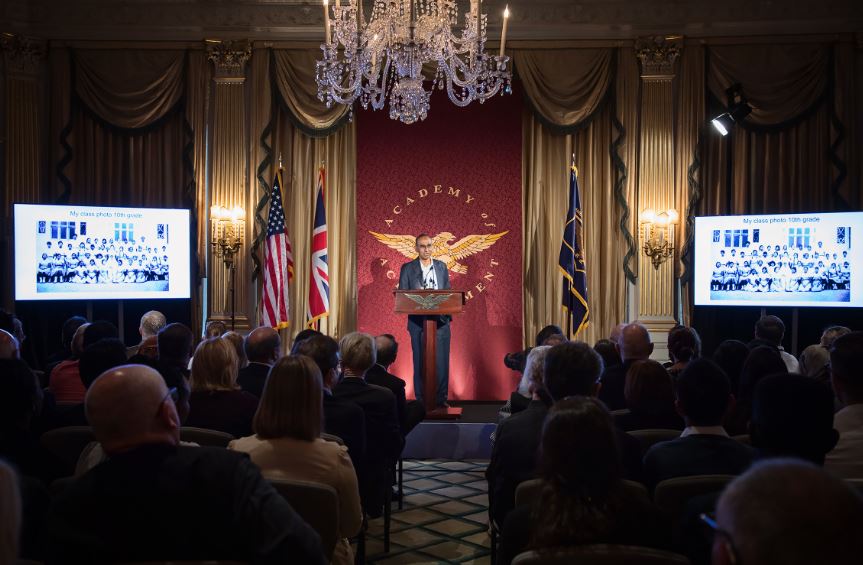 Dr Ramakrishnan addresses summit delegates in Mayfair, London in 2017 | Photo Credit: Academy of Achievement[/caption]
Dr Ramakrishnan addresses summit delegates in Mayfair, London in 2017 | Photo Credit: Academy of Achievement[/caption]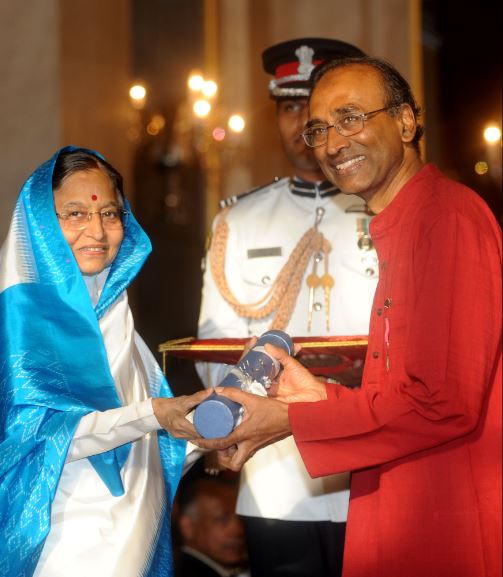 Dr Ramakrishnan receiving Padma Vibhushan from former President, Pratibha Patil in 2010[/caption]
Dr Ramakrishnan receiving Padma Vibhushan from former President, Pratibha Patil in 2010[/caption]
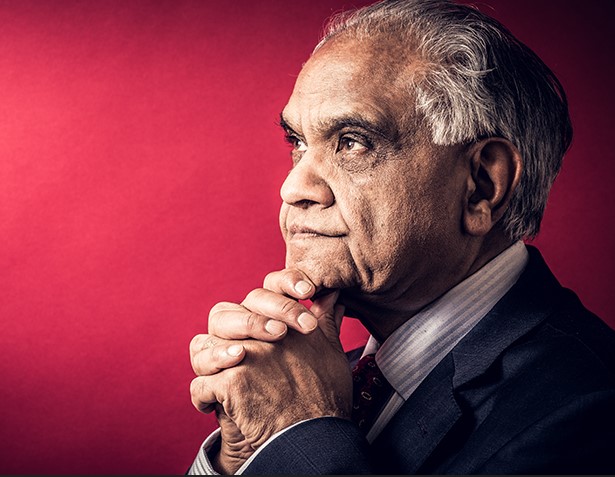 Ram Charan[/caption]
Ram Charan[/caption]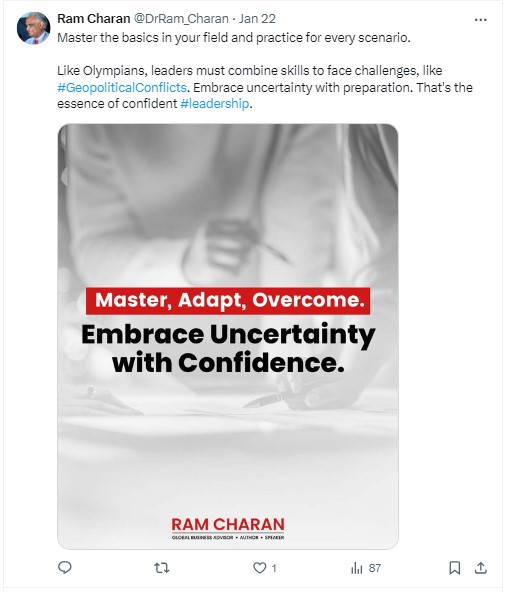
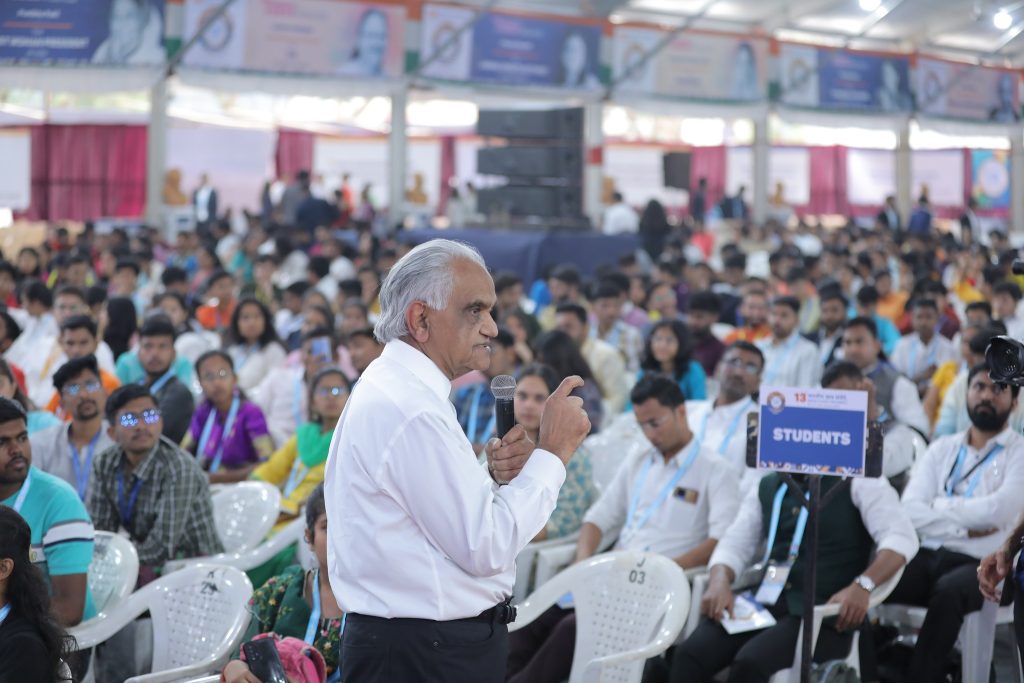 Ram Charan at
Ram Charan at 
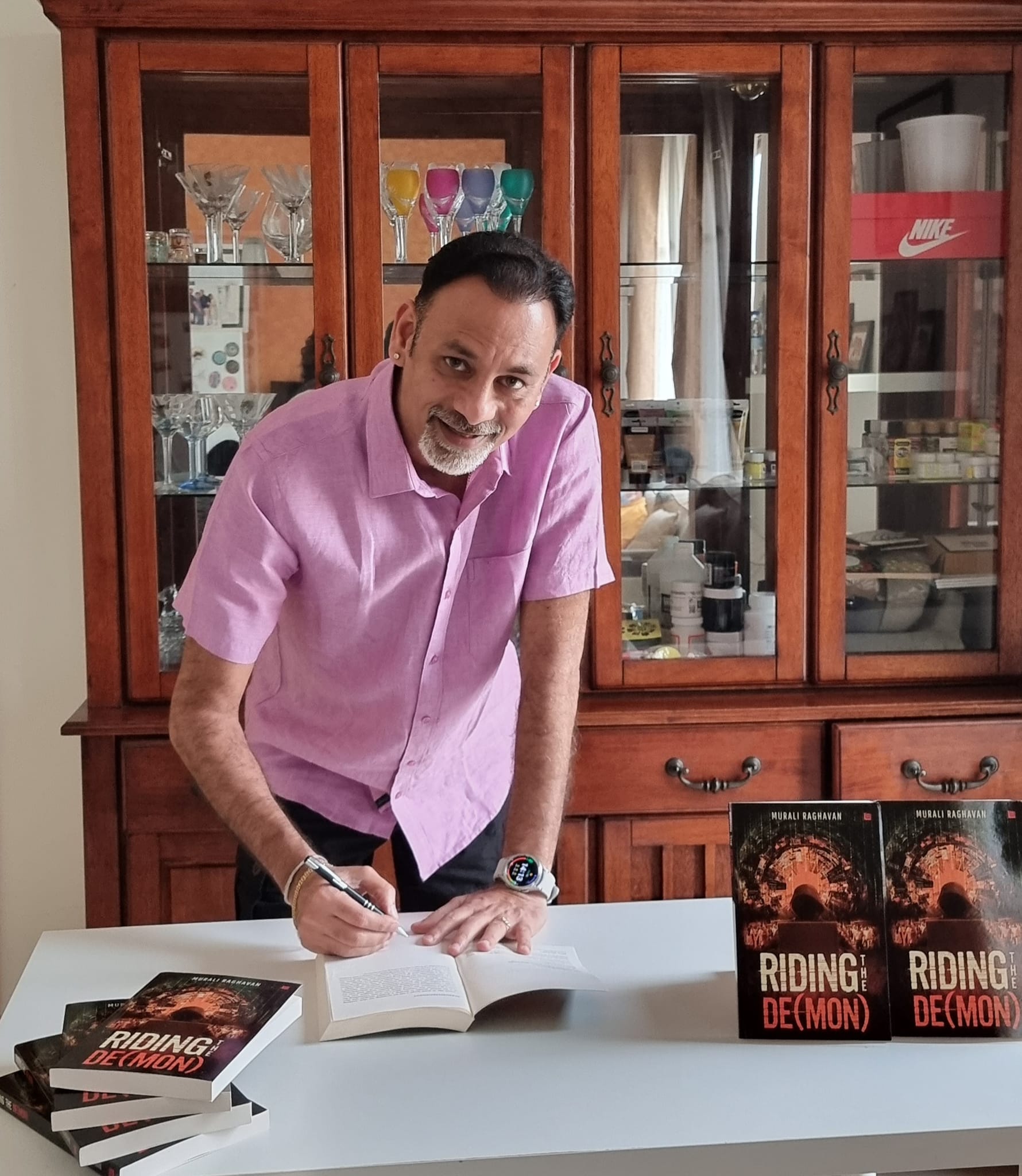 Murali Raghavan, author of Riding the De(Mon)[/caption]
Murali Raghavan, author of Riding the De(Mon)[/caption]
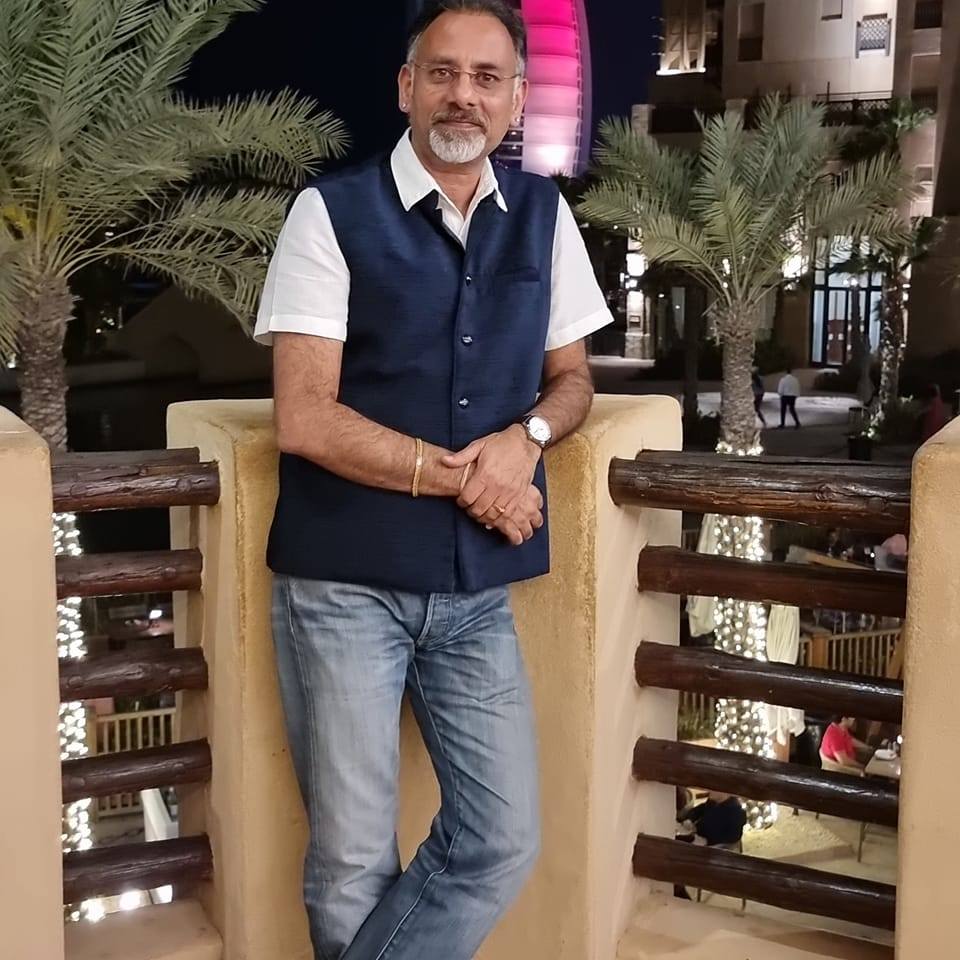
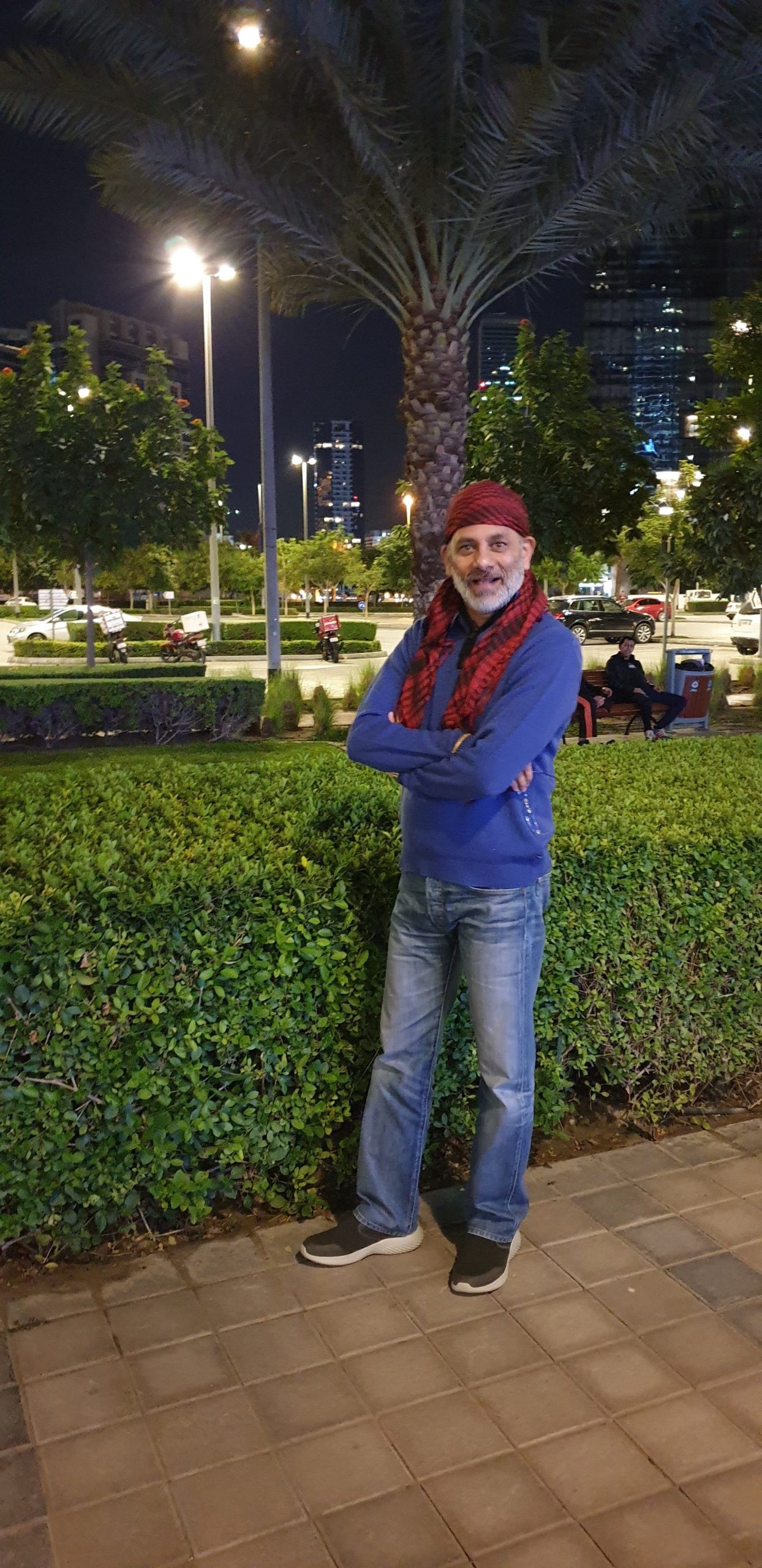
Excellent article as usual.